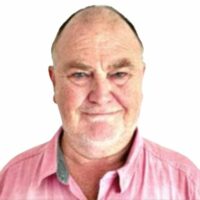Murdoch would have us believe ABC is a hot-bed of leftist activists but the reach of ABC Rural, funded by Google, is conservative, broad and well funded. Brian Burkett, Emma Mesikämmen and Lisa Waller analysed the corporation’s Rural Reports to test claims of bias.
The ABC’s Rural Reports are 15-minute radio programs which air at 6.15am weekdays on local radio in regional Australia. There are 16 different editions across regional stations from the Pilbara, Alice Springs, Katherine, Esperance, Mount Isa, to Gippsland, the Riverina and more. This analysis of daily Rural Reports was conducted for six weeks before the 2022 federal election and for three weeks afterwards – over 200 hours of radio time and thousands of stories produced by dozens of ABC Rural journalists.
ABC’s Rural Reports have the discursive power to produce and then normalise how we imagine the rural world to be. The drop-menus on ABC Rural’s home page limit what ‘‘rural’’ means: agricultural crops, livestock, fishing, grains, mining, markets and weather and local news. It’s the old settlers’ world view, a daily package of myth making which valorises farmers and various culturally associated activities and organisations, such as bush races, campdrafting, rodeos and the Country Women’s Association.
Rural Report stories - 11 April to 10 June, 2022*
| Industry group, lobby group | Producer, grower, fisher, other | Business - non farming, mining, miller, transport | Rural banks, traders, agents, market analysts | Environmentalist organisation – excluding local landcares, natural resource bodies | Union issues | Indigenous (with indigenous speaker) |
|---|---|---|---|---|---|---|
| 380 | 404 | 253 | 199 | 14 | 9 | 14 |
In March 2022, just a month before the federal election was called, the managing director of the ABC, David Anderson, and the member for Maranoa and then minister for agriculture, David Littleproud, were the prominent dignitaries at the launch of the ABC Charleville office. Charleville is a key regional town in the flatlands of south-west Queensland. It’s National Party heartland. We are not told why Charleville was accorded the honour of launching 10 locations for the ABC, but the campaigning presence of Littleproud may provide a clue.
ABC Country Hour – mouthpiece of Liberal National Party and rural elites?
A few months earlier, when the Google and Facebook revenue sharing deal with the ABC was announced, then communications minister, Paul Fletcher magnanimously declared that the government would allow the ABC to keep the cash.
Protecting the regions
The regional expansion came after a decade of budget cuts and “pauses” of funding of the public broadcaster by the LNP government. In the background, the Nationals had been reported as pushing to ensure any cuts did not affect regional services. At the same time, according to The Sydney Morning Herald, the national broadcaster advised Fletcher that it “was prepared to invest tens of millions of dollars more outside capital city centres if the Morrison government was prepared to reverse its budget cuts”.
Anderson was smiling at the Charleville launch: “It’s easier to cover issues for this community by having a presence here,” he said. But which “issues” and which “communities” actually benefit from the ABC’s rural journalism?
Two months after the Charleville launch, following the federal election and Littleproud’s elevation to leader of the Nationals, ABC Rural in Queensland dedicates generous airtime to stories where Littleproud is praised by regional worthies. One is the former member for Maranoa and National Party elder Bruce Scott who said “David grew up in a National Party family. His father was the member for Condamine … he understands quite intimately I’m sure the challenges that so many farmers have been facing … I have a great deal of confidence in not only his ability but his ability to listen to people…he’s had a wonderful career in agriculture including water …”
In a story originating on the ABC’s North West and Western Rural Report and broadcast across Queensland, Littleproud is boosted by a former head of the National Farmers Federation and prominent local businessman: “He should grow into a strong and effective leader … He won’t lose sight of who his constituents are.” In another story a Longreach grazier calls Littleproud “more progressive”.
A fair deal for Labor?
It was in stark contrast to how the Labor Minister for Agriculture was introduced to Rural Report listeners on June 1. He had to introduce himself and his own roots and relationship to rural Australia. There are no accompanying stories with party elders to vouch for him and give him standing. A Rural Report presenter from Western Victoria canvasses views on Murray Watt from the chairman of GrainGrowers. The presenter led the discussion by highlighting that the senator lives in an urban electorate:
With no rural background, Gold Coast MP Murray Watt will need to hit the road running – that’s according to GrainGrowers chairman…
In the first edition of the North Queensland Rural Report after the election, the presenter dedicates the program to canvassing the views on the change of government from Growcom (a growers advocacy group), FNQ Growers (another advocacy group) and Georgie Somerset, an ABC director, who provides her view from Agforce (yet another farmer’s lobby group). This is the same Agforce whose CEO, in an Orwellian piece of image-making, paraded in a green shirt to declare that the science of climate change isn’t settled.
On all three editions of the NSW Rural Report immediately following the election, the president of NSW Farmers, James Jackson, didn’t waste the opportunity to denigrate the Labor Party:
There’s a long road ahead to educate Labor on issues affecting all Australians … it’s a challenge with a government with very little understanding of rural issues…they are woefully undermanned on rural issues.
In the two weeks following, we could not find that any airtime was given to the incoming government to rebut these assertions.
Before the election, and perhaps telling for regular MWM readers, was the attention given to some good old scaremongering about water buybacks. In an interview broadcast by seven editions of the Rural Report from Queensland to South Australia, National Farmers Federation President, Fiona Simson said “People are very nervous about the Murray Darling basin … there’s a lot of checks and balances in place …we [the NFF] are opposed to [water] buybacks.”
Val Shopping: Barnaby Joyce department paid 57 times over for #watergate rights
Finally, from a First Nations people perspective it’s the 1800s all over again. The discourse is evocative of colonial newspapers with the terra nullius ideology being reproduced daily. On the Outback NT Rural Report in a nine-week period of 145 stories broadcast, 40 reported on the cattle industry. There were only five counted featuring First Nations matters and three with Indigenous speakers to those stories. In South Australia in the same period there were 300 stories with none located presenting Aboriginal rural issues.
Indigenous Australians ignored
Broadcasting from Alice Springs, the nearest regional centre to Uluru of all the ABC’s stations, the Outback NT Rural Report didn’t mention the Uluru Statement in the nine weeks of this study. Nor is the Uluru Statement raised as an issue in any of 480 Rural Reports across Australia in the six-week pre-election period.
The new Minister for Indigenous Australians, Linda Burney, isn’t mentioned once in over 2100 Rural Report stories across Australia over the whole nine-week period we analysed. The first Indigenous woman to hold the post wasn’t named and was provided no opportunity about speak to her proposed policies for rural Australia. She is afforded no standing, no power in this imagined rural world.
Other voices which are muted or completely non-existent on Rural Reports, include the hundreds of thousands of essential workers in rural and regional towns: nurses, teachers, carers, road and railway workers, police, rural unions, agricultural workers (employees rather than employers). Voices which run counter to the dominant narratives, environmental and conservation groups and academic experts, and people who live in rural towns and whose opinions challenge the business dominated rural discourse, are also very rarely heard.
Hoary old myths
In April 2022, Anderson declares in a piece directed towards the Friends of the ABC, that:
…the vast majority of people living in regional and rural Australia overwhelmingly support and trust the ABC and we are delivering on those relationships.
While that may be so, we have found in this and other studies that ABC Rural Reports continue to produce an imagining of the rural space where the people with standing and therefore deemed worthy of being listened to are the big cotton growers, grain growers, meat producers, miners, their political allies and their lobbyists, researchers, bankers and traders.
Australians seeking more rounded thinking and a forward looking policy direction for the Great Barrier Reef, the Murray Darling Basin, Northern Australian river basins, a sustainable future for cassowaries or infrastructure for Indigenous homelands are unlikely to hear ABC Rural Reports championing their stories.
Partially funded by Google and Facebook, the ABC Rural Report is still perpetuating old myths and manufacturing consent for last century’s populist imaginaries.



